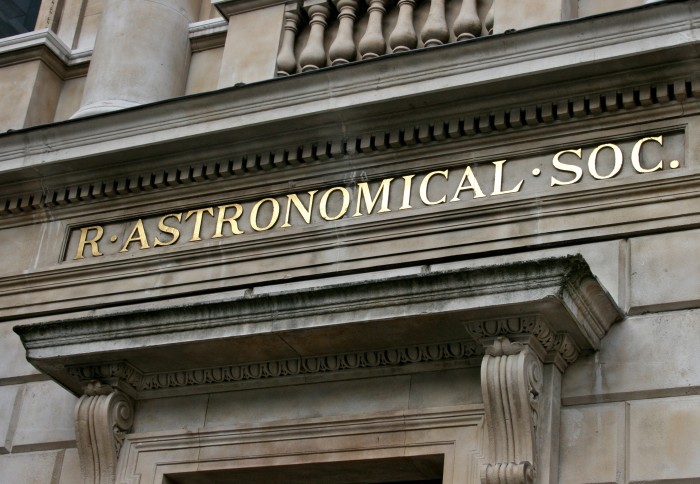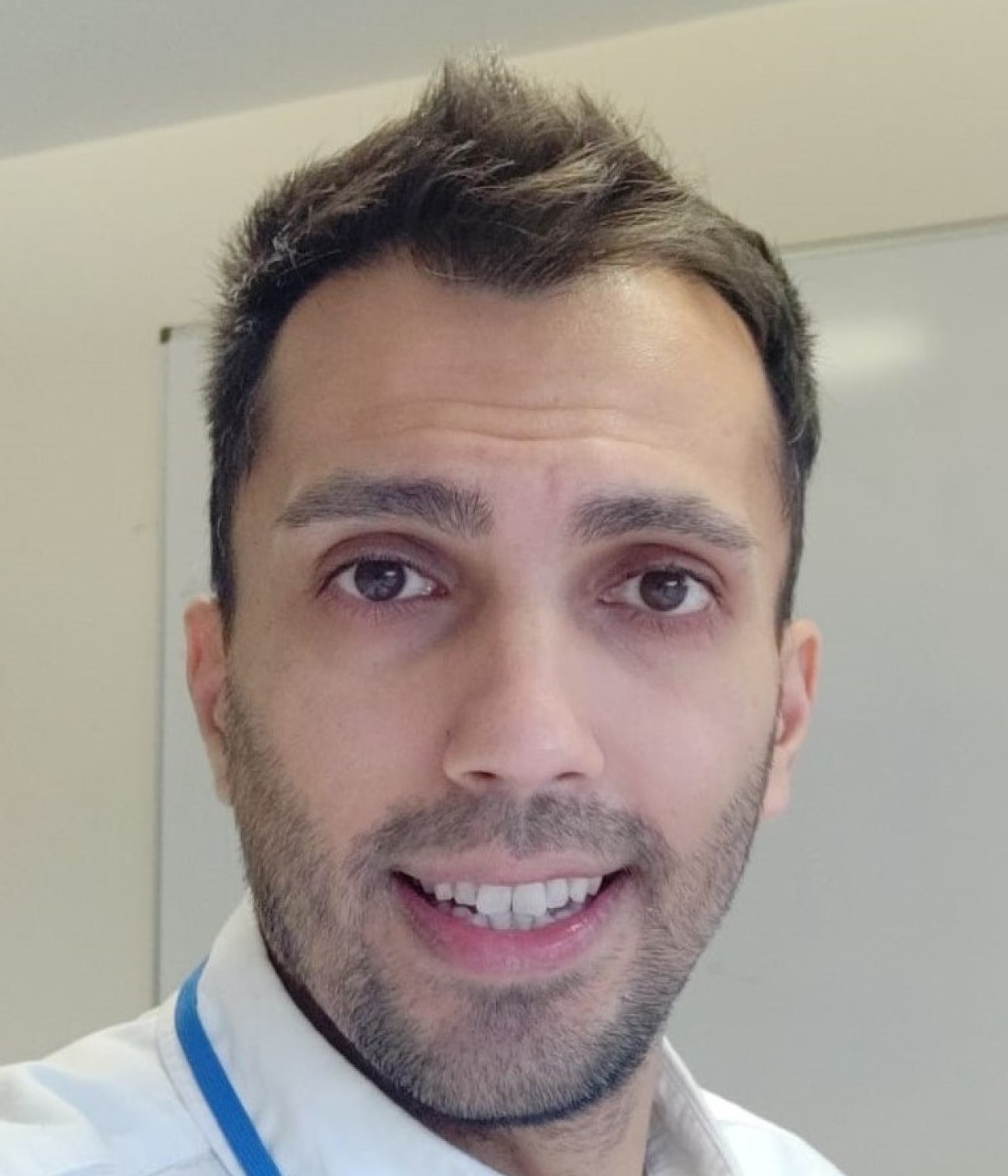Imperial astrophysicists recognised for teaching and research excellence

Imperial’s Professor Marina Galand and Dr Ravindra Desai have won accolades in The Royal Astronomical Society’s 2023 Medals and Awards.
The Society presents several awards, medals and prizes as part of its remit to support and encourage scientists working in the fields of astronomy and geophysics.
Professor Marina Galand - James Dungey Lecture
 Every year, the Royal Astronomical Society honours an authoritative and engaging speaker by inviting them to deliver the James Dungey Lecture on a suitable topic in geophysics (including solar physics, solar-terrestrial physics, or planetary sciences).
Every year, the Royal Astronomical Society honours an authoritative and engaging speaker by inviting them to deliver the James Dungey Lecture on a suitable topic in geophysics (including solar physics, solar-terrestrial physics, or planetary sciences).
Invited to give the 2023 lecture, Professor Marina Galand is a world-leading expert in the atmospheric physics of a wide range of solar system bodies. These include planets such as Earth and Saturn, moons such as Titan and Ganymede, the comet 67P/ Churyumov-Gerasimenko, and exoplanetary bodies.
Her detailed approach to modelling atmospheres has produced new insight into the energy sources and physical processes operating within atmospheres of distant solar system objects, where in-situ data is rare.
Among her many achievements, her work on aurora on comets has been highlighted for praise, which has impacted our understanding of how aurora are generated at other planetary bodies such as Earth, Mars and Jupiter’s moons Ganymede and Europa. She has been involved in missions including the Rosetta mission to comet 67P, Comet Interceptor, Venus Express, Cassini-Huygens and the Jupiter Icy Moons Explorer.
Imperial legacy
Professor Galand is also a proven, excellent science communicator presenting at many science festivals and exhibitions, publishing in popular science magazines and receiving awards for her teaching and student support.
On receiving the award, Professor Galand said: “It is a great honour to receive this award named after James (Jim) Dungey, an amazing scientist who pioneered many fundamental concepts in space physics. Beside magnetic reconnection and its key implication on solar-terrestrial interaction, he was the first to recognise the importance of magnetosphere-ionosphere coupling on which I have been working for many years. He was also vital in the birth of space weather in which aurora, dear to my heart, plays a key role.
“And last but not least, Jim Dungey for whom we celebrate the 100-year anniversary of his birth this year, was Professor at Imperial College London from 1965 to this retirement in 1984 and his legacy is still vivid through the bright careers he fostered and the very active, timely, and critical research ongoing in Sun-planet interactions in the Department of Physics.”
Dr Ravindra Desai - RAS Higher Education Award and Winton Award (G)
 Dr Ravindra Desai has been honoured with two awards. The Winton Award (G) is given for early achievement in geophysics for research by an individual in a UK institution, whose career has shown the most promising development within five years of completing their PhD.
Dr Ravindra Desai has been honoured with two awards. The Winton Award (G) is given for early achievement in geophysics for research by an individual in a UK institution, whose career has shown the most promising development within five years of completing their PhD.
The RAS praised Dr Desai for making substantial and outstanding contributions to science in the field of space plasma physics, with a specialism in computational plasma modelling.
Dr Desai has developed a new capability for modelling solar wind interactions with the Earth’s magnetic atmosphere. This model is uniquely capable of capturing the dynamics associated with the most severe space weather events, in addition to providing important insight into the physics of solar-terrestrial plasma interactions.
Dr Desai has also developed novel ways of modelling the heliosphere – the region of space influenced by the Sun. His work is an inspiring example of how to harness next-generation high-performance computing capabilities to solve space physics problems, the RAS citation said.
Education excellence
The RAS Higher Education Award is given for particularly noteworthy contributions to undergraduate or postgraduate student supervision in higher education of astronomy or geophysics.
Dr Desai was a Post-Doctoral Researcher at Imperial College London and is now an STFC Ernest Rutherford Fellow at the University of Warwick, as well as retaining Academic Visitor status at Imperial. The RAS citation states that Dr Desai has been an “outstanding contributor to the supervision of undergraduate and postgraduate students across Imperial”.
By providing clear motivation and cutting-edge research problems, Dr Desai gives his students the perfect platform to learn, develop and acquire new skills. His individualised approach to supervision has helped students to grow in confidence and become embedded in international collaborations.
Dr Desai’s commitment to research supervision has seen him supervise thirty students in just four years. Dr Desai has also guided many of his students to publications in peer-reviewed journals, including one notable first-year project.
All of this work is supported by a commitment to widening inclusivity and diversity, as an active committee member of Imperial As One. Dr Desai has also volunteered his time to supervise and mentor A-Level students taking place in the Nuffield Research Placement program, supporting students from underrepresented groups.
On his awards, Dr Desai said: “I am over the moon to receive these awards, the RAS has been a tremendous support throughout my academic journey, and I look forward to engaging with them further in the future.”
Article text (excluding photos or graphics) © Imperial College London.
Photos and graphics subject to third party copyright used with permission or © Imperial College London.
Reporter
Hayley Dunning
Communications Division